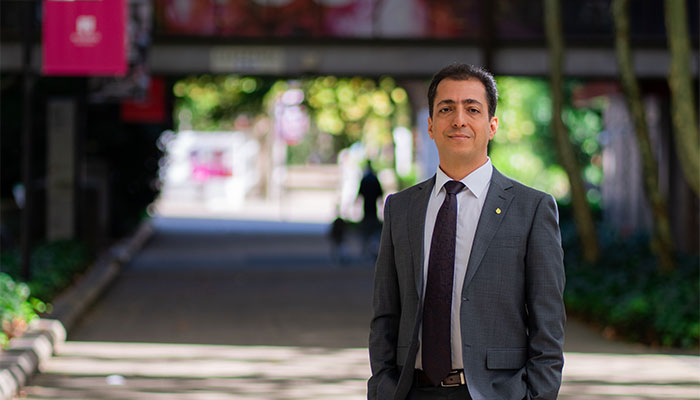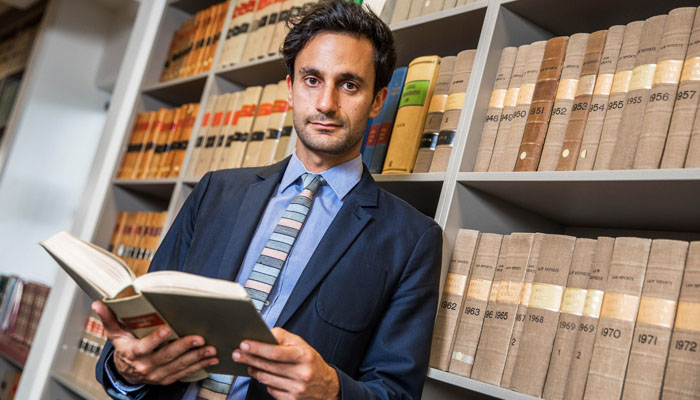Teacher shortages and burnout in some schools and universities is at an all-time high, and the traditional method of manually grading exams is time-consuming, expensive and can be prone to human error. Using AI to automate the process has the potential to not only save time and money, but also increase accuracy and fairness in grading.

Drawing on a half-a-million dollar research grant, the team at the Centre for Applied AI, led by Professor Amin Beheshti, has partnered with ITIC, a leading Australian company in education and research, to develop algorithms that can analyse and understand student responses to exam questions.
These algorithms will be trained on a large dataset of previously graded exams, lecture materials and recording, reference books, and more, allowing them to learn how to identify and evaluate specific patterns in the answers. With this capability, the algorithms can accurately and consistently grade exams, with much faster turnaround times than human graders.
It eliminates human bias, ensuring all students are graded fairly and accurately.
Director of the Centre for Applied AI, Professor Amin Beheshti, explains the significance of the system and method for the automated assessment of student learning.
“There are several benefits to automating exam marking using generative AI, which is a type of artificial intelligence that is capable of creating new and original data (such as images, music or text) and processes (such as generating personalised learning plans for individual students based on their strengths, weaknesses and learning preferences), by learning patterns and features from existing data,” says Professor Beheshti.
“It will save time and resources, allowing educators to focus on other important tasks. It eliminates human bias, ensuring all students are graded fairly and accurately, and it provides immediate feedback to students, allowing them to learn from their mistakes and improve their performance in future exams.”
Plagiarism alert
With the growing use of technology in education, Professor Beheshti believes automating exam marking using generative AI is a logical step towards enhancing the learning process. Moreover, the use of generative AI for exam marking has the potential to significantly improve the quality and reliability of assessments in the education sector.

Game changer: Professor Beheshti, pictured, says using AI to mark exams will save time, allowing educators to focus on other important tasks.
“Another key benefit of using generative AI to automate exam marking is its ability to detect plagiarism. By analysing and comparing the answers provided by students in the same exam, as well as previous exams, generative AI algorithms can identify similarities that may indicate plagiarism,” explains Professor Beheshti.
“Furthermore, generative AI can also detect subtle differences in writing styles, making it more difficult for students to evade detection. This will ensure academic integrity and discourage cheating, providing a fairer and more transparent evaluation of student performance.”
- Video interview: Educator Shane Hogan to start a new school from scratch
- Humans of Macquarie profiles
Automating the marking process, particularly in online and large-scale learning environments, has the potential to allow educators to focus on tasks such as analysing student performance data and developing personalised learning plans. This would enable them to provide targeted feedback and support to students, enhancing the quality of teaching and learning processes.
“In addition, automating exam marking using generative AI can provide more detailed and consistent feedback to students. This feedback can include not only the final grade but also specific comments and suggestions for improvement. This can help students better understand their strengths and weaknesses, and focus on areas where they need to improve,” says Professor Beheshti.
Professor Amin Beheshti is the Director of the Macquarie University Centre for Applied Artifical Intelligence (AI)



